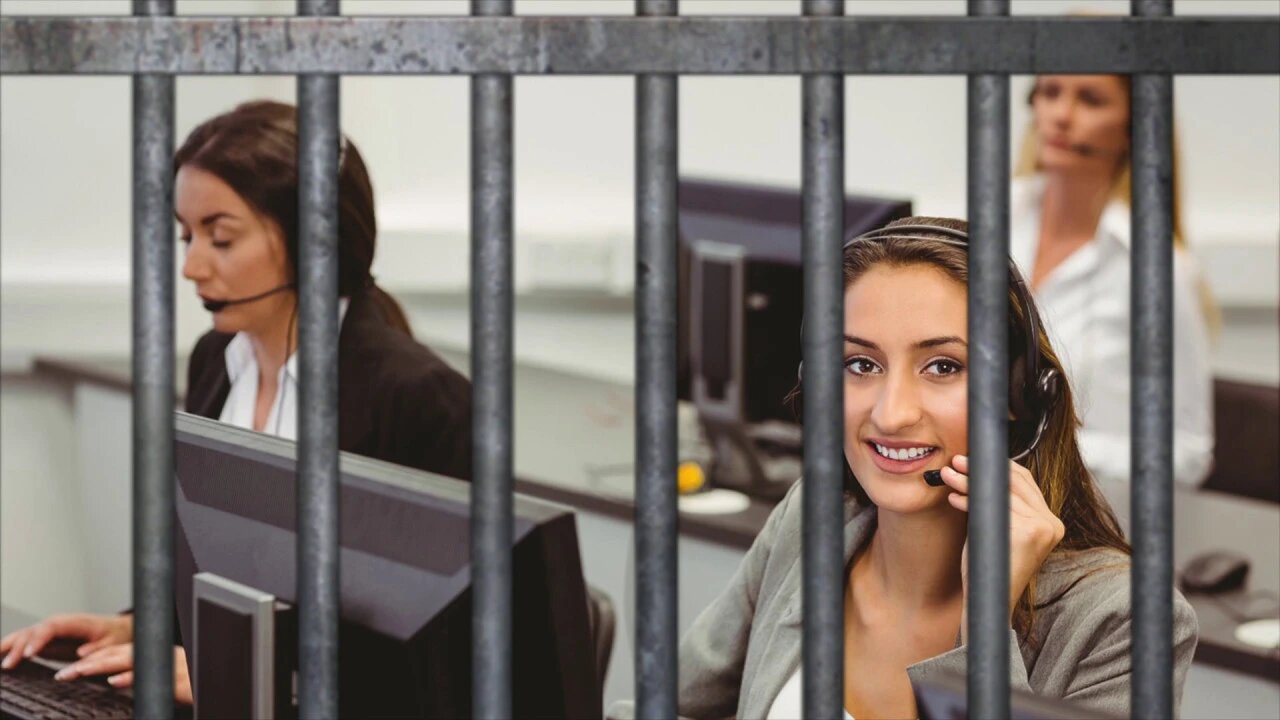Premium Only Content

Mike Bloomberg Borrows Prison Labor to Make 2020 Presidential Campaign Phone Calls
Mike Bloomberg used prison labor to make 2020 presidential campaign phone calls.
His campaign contracted ProCom to run call centers, but at least one of those call centers used state prisoners.
The calls must of went something like this…
Operator's voice: [Would you like to receive a collect call from “Debbie” at the Oklahoma Correctional Facility?]
Debbie: “Hi, this is Debbie calling on behalf of the Bloomberg campaign. We’d like to talk to you today about…”
Operator's voice: [You have 60 seconds left.]
The Bloomberg campaign confirmed the use of prison labor in a statement to The Intercept,
“We didn’t know about this and we never would have allowed it if we had. We don’t believe in this practice and we’ve now ended our relationship with the subcontractor in question.” — Julie Wood, Bloomberg spokesperson
The managing editor of Prison Legal News offered his input into the matter,
“The use of prison labor is the continued exploitation of people who are locked up, who really have virtually no other opportunities to have employment or make money other than the opportunities given to them by prison officials.” — Alex Friedmann
But John Scallan, a ProCom co-founder, said his company paid a minimum wage of $7.25 to the Oklahoma Department of Corrections, which then pays the incarcerated people working in the call centers.
Despite some misconceptions, federal law requires contractors to pay prisoners at least a minimum wage, but the state can garnish those wages to help offset the cost of incarceration.
The Bloomberg campaign also isn’t the first campaign to recruit the help of inmates: in 1994, Congressman Metcalf used prisoners to make campaign calls.
Michael Bloomberg was wrong, but he was wrong to apologize because I think prison labor is an acceptable practice when done right…
For one, the U.S. Constitution allows for it so it wasn’t illegal, but of course, the greater question is was it ethical?
Former inmate and prison activist Chanra Bozelko had this to say on the matter…
“My prison job made me feel like I was fulfilling my existential duty to society: I was contributing. It doesn’t surprise me that prison work assignments are credited with reducing recidivism. Any change for good that happened within me while I was incarcerated grew out of my job.”
But there needs to be appropriate protections otherwise it can turn into a form of slave labor.
The first protection is that an inmate should get at least minimum wage, which is already mandated by law, but 100% of the money should go to the inmate and not the state. The prison also shouldn’t make a dime off of the prisoner’s labor.
Whole Foods used to sell cheese produced on a prison farm. A company spokesman said,
“We felt supporting suppliers who found a way to be part of paid, rehabilitative work being done by inmates would help people get back on their feet and eventually become contributing members of society.”
But after consumer protests in 2015, Whole Foods ended the partnership.
And so just as it would be illegal for the state to prevent someone on House Arrest from being able to work (asking Quora questions, perhaps?) we shouldn’t prevent someone in prison from being able to work.
Prisoners have a hard enough time being able to find work once they come out of prison and preventing them from working during the duration of their incarceration would only make their eventual transition that much harder.
Our prison system should focus on rehabilitation and contribution where work is seen not just as a responsibility, but a right.
-
 20:07
20:07
BlackDiamondGunsandGear
13 hours agoSPRINGFIELD ECHELON COMPACT / NOT GOOD
40.7K3 -
 1:05:06
1:05:06
Man in America
14 hours agoThe Terrifying Truth Behind Chemical Fog, Wildfire Smoke & Chemtrails w/ Dr. Robert Young
37K47 -
 2:54:47
2:54:47
Tundra Tactical
7 hours ago $7.58 earnedSHOT Show 2025 Wrap Up!! On The Worlds Okayest Gun Live Stream
49K1 -
 LIVE
LIVE
Right Side Broadcasting Network
1 day agoLIVE REPLAY: President Donald J. Trump Holds His First Rally After Inauguration in Las Vegas - 1/25/25
3,024 watching -
 2:55:24
2:55:24
Jewels Jones Live ®
1 day agoWEEK ONE IN REVIEW | A Political Rendezvous - Ep. 107
125K41 -
 1:33:29
1:33:29
Michael Franzese
1 day agoTrump Wastes No Time: Breaking Down Trump’s First Week Executive Orders | LIVE
134K94 -
 1:26:44
1:26:44
Tactical Advisor
16 hours agoTrump Starting Strong/Shot Show Recap | Vault Room Live Stream 015
96K9 -
 10:18
10:18
MrBigKid
12 hours ago $2.20 earnedInsanely Compact Hunting Tripod you HAVEN'T heard of... Revolve
51.3K5 -
 20:29
20:29
marcushouse
19 hours ago $8.22 earnedUnleashing the Power of SpaceX's Starship: Why is it a Big Deal!?
86K11 -
 10:46
10:46
Rethinking the Dollar
1 day agoTrump Knows 'The Real Threat' To Your National Security
61.7K19